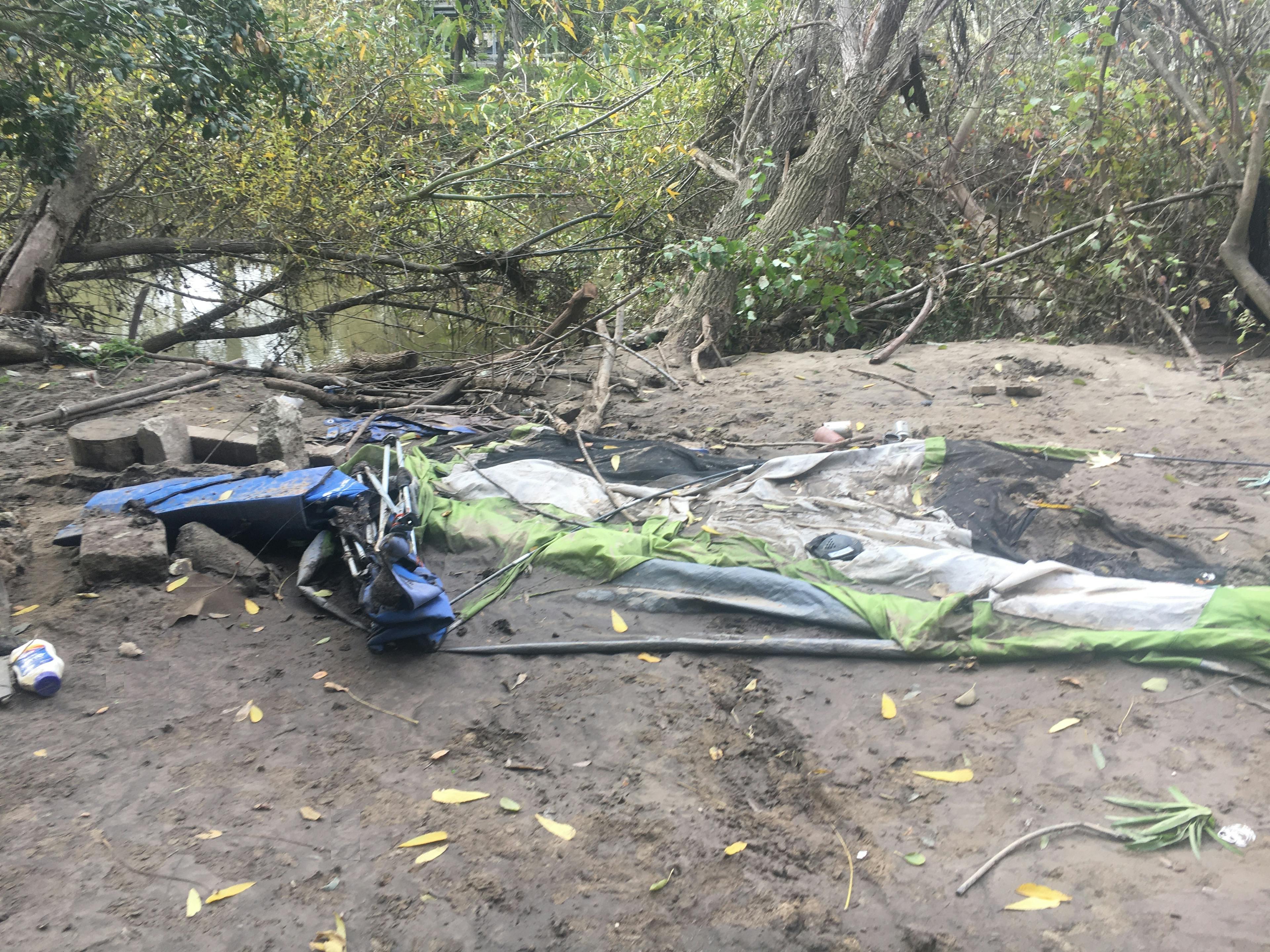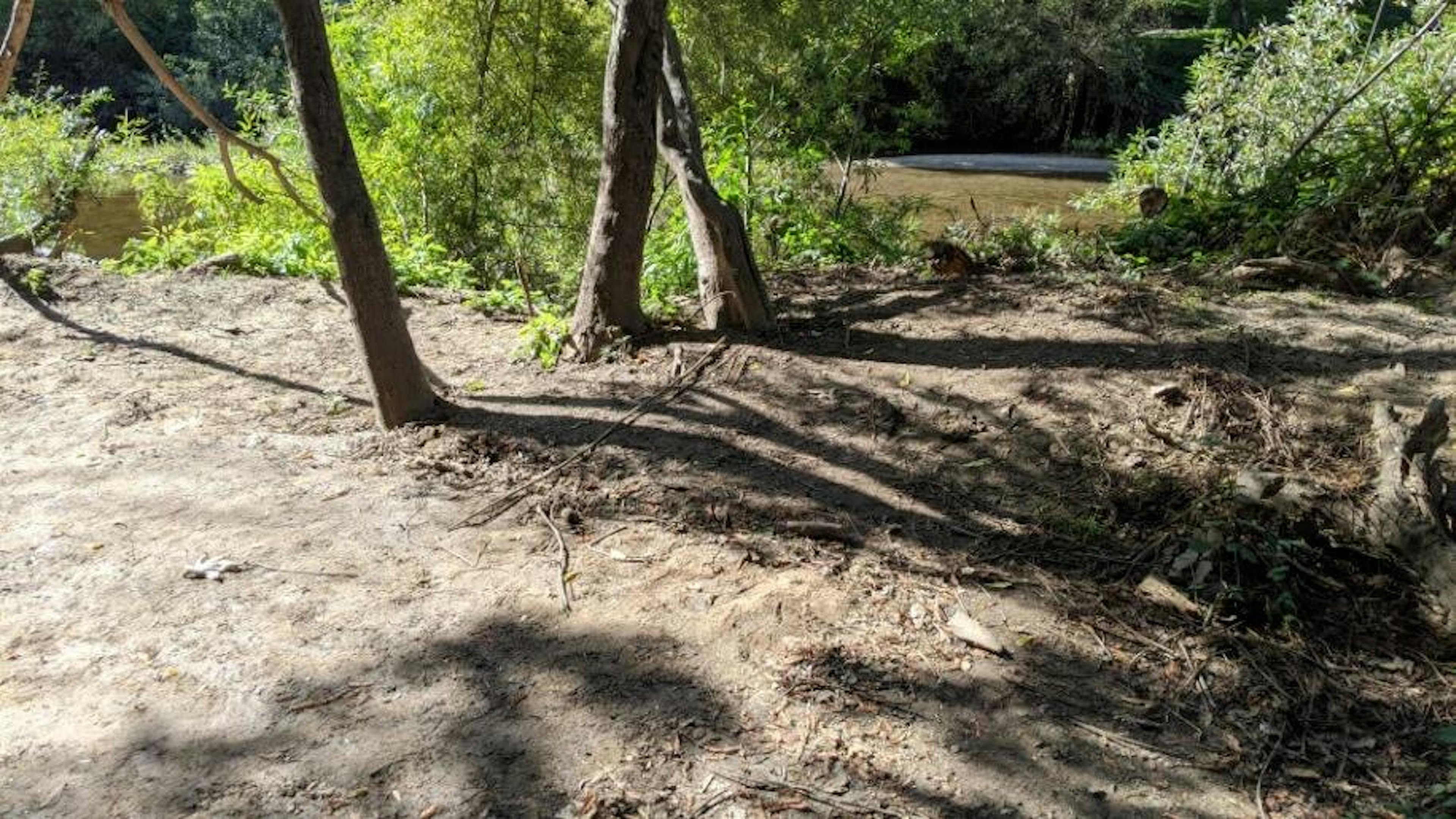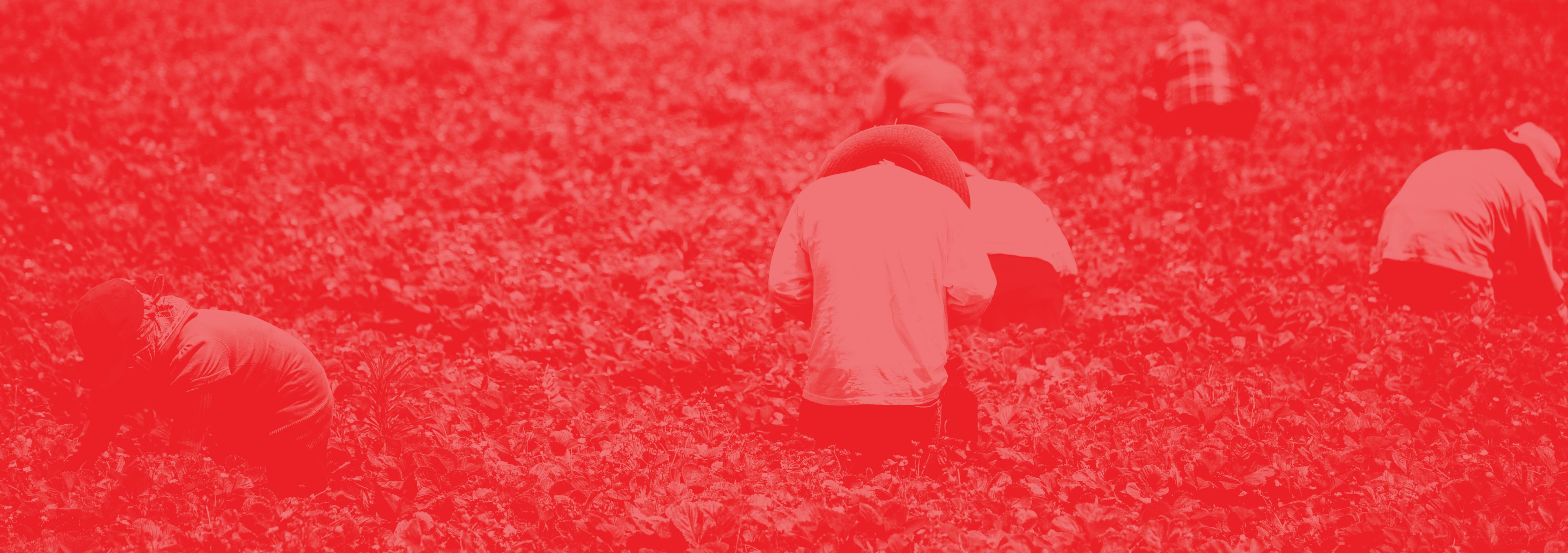
“As many of us enjoy the holiday with our families and friends, we must also recognize the heartbreaking crisis of unhoused residents in our community, especially during inclement weather. Job number one of the City is to really protect lives, especially our most vulnerable.” So explained Santa Cruz City Councilor Sonja Brunner, quoted in Jessica York’s December 21st Sentinel article “Santa Cruz seeks shelter options ahead of rainstorm.”
But if Brunner and the City cares about really protecting lives, they have an odd way of showing it. In the last year, Brunner actually helped craft and pass two notorious policies in City Council that prioritize the criminalization of homelessness: CSSO (Camping Services and Standards Ordinance) and the OVO (Oversized Vehicle Ordinance). Both exemplify the City’s cruel approach that punishes and criminalizes people for living outside and in RVs. As Santa Cruz Left and Santa Cruz Cares have explained on several occasions, these policies end up producing precarity rather than stability, providing little in the way of much needed services and safe locations to stay.
The local media outlet Lookout recently detailed the outcomes of the City’s fee and fine-based strategy that seeks to financially punish the most vulnerable, which OVO and CSSO seek to expand.
“Since April 2019, volunteers with the Santa Cruz Police Department issued 1,490 tickets to owners of oversized vehicles, amounting to $140,649. The three top fine balances for individual vehicles amounted to $9,852, $8,056 and $7,249. From Nov. 1 to Dec. 6 of this year, 519 storage citations — running at $118 apiece — were issued, amounting to $61,242. For the same period, 228 vehicles were cited for lack of visible vehicle registration, amounting to $2,280. It is unclear from the data how much of this has been collected.”
Tickets, fines, policing, and incompetent planning, facilities, and services: this is the reality behind the City’s and Brunner’s misleading claims about protecting the lives of the most vulnerable.
No doubt the majority of these fees will never be collected, because those suffering impoverishment and indebtedness will never be able to repay them. Instead, fees and fines drive multitudes further into debt, worsening precarity and in some cases leading to incarceration. In fact, researchers colloquially refer to these types of fines and fees that lead to tows as “poverty tows” because they target poor people, entrenching them further in poverty and wasting city money and resources along the way. Meanwhile, 80% of people nationwide support reducing or replacing fines for minor violations of the law, according to recent research from the Fines and Fee Justice Center whose goal is to to decriminalize poverty.
Is Sonja Brunner, and the pro-criminalization majority on the Santa Cruz City Council, really concerned about protecting lives, or rather—as their voting record shows—are they subjecting “our most vulnerable” to further financial hardship, policing, and ultimately to the tyranny of forced itinerancy?
The harmful results of the City’s policies and the County’s negligence was further dramatized by the storm that struck the city during the week of December 13th, bringing disaster to both sanctioned and informal encampments along the San Lorenzo River where some estimated 400-600 people live. Things were so bad the disaster story got covered in the Guardian online.
On December 13th, following the early warnings of incoming storm reports—but which the City and County failed to adequately communicate to those living outside—lashing rain and rising waters washed away many tents and belongings, creating dangerous conditions on the ground for those living at the river’s edge. Near freezing temperatures threatened hypothermia. According to the City’s “December 2021 Storm Response” timeline linked on their “Homelesness” page, people were encouraged to seek temporary shelter in the River Street parking garage–in other words, on cold, wet concrete, with meager supplies and little moving assistance. Not surprisingly, few found this option to be a better alternative to their tent encampments.
Those who did not seek shelter in the parking garage tried to gain higher ground in San Lorenzo Park and adjacent areas close to where they have been living for many months, near to their belongings and their community. In the midst of the desperate scramble for safety, with the storm still surging, the police response was to threaten people with citations if they moved to unauthorized areas, and at least one person was given an $80 ticket. The predictable result: many chose to move back into the dangerous flood zone.
The City’s logic cruelly weaponizes the environment against the most vulnerable, leaving people in emergency circumstances to survive on their own or die trying. In doing so, the City not only recruits stormy weather to do its dirty work—enacting camp clearances, tent removals, and so on—but also instrumentalizes environmental protection—i.e. concerns over river cleanliness and ecosystem health—against human welfare. It looks like there will be more of the same in coming weeks of predicted heavy rain and cold temperatures.
Laying bare the inadequacy of City policy, Lookout explains,“The city has redirected those who sheltered at the temporary emergency shelter at River Street Garage to Depot Park, which will remain open as an emergency evacuation site for an undetermined amount of time. However, as the city’s Homelessness Response Manager Larry Imwalle stated, Depot Park is able to house 32 persons—and is currently at capacity.” Meanwhile, Imwalle, in an October 20th interview with the Santa Cruz Sentinel, “admitted to having little on-the-job experience working directly on homelessness issues,” but that didn’t stop the City Council from offering him a $144,000 a year salary as its Homelessness Response Manager.
Tickets, fines, policing, and incompetent planning, facilities, and services: this is the reality behind the City’s and Brunner’s misleading claims about protecting the lives of the most vulnerable.

Camp Paradise, Santa Cruz, after the storm, showing a campsite washed out, destroyed, and abandoned, Dec. 19, 2021 (Photo: Joy Schendledecker)
In the vacuum of the City’s response, members of DSA’s Mutual Aid Working Group, aka Love Boat, in coordination with affiliated organizations including Santa Cruz-based Sanitation for the People, stepped in to host warming stations and distribute much-needed supplies at San Lorenzo River Park for several mornings following the December 13th storm. This included passing out community-funded tents, sleeping bags, hand warmers, and socks, and serving coffee and hot oatmeal. In addition, Love Boat continued their longstanding weekly distribution of food, first aid, hygiene, and other supplies; and Sanitation for the People organized a clean up (along with two City contract employees) of dispersed belongings and trash left in the storm’s wake in nearby Camp Paradise. DSA member and Sanitation for the People co-organizer Joy Schendledecker said the stations helped out hundreds of people on these occasions. (Many other faith-based, non-profit, and community groups and individuals also mobilized to provide aid and resources to people living outside in Santa Cruz; as well as a comrade-supported Warming Center at an encampment in Watsonville.)

Camp Paradise, Santa Cruz, prior to the storm and following an organized clean-up by Sanitation for the People, Nov. 7, 2021
Taking issue with these actions, reactionary social media haters and Nextdoor trolls have asserted that mutual aid and harm reduction efforts only “enable” and “perpetuate” Santa Cruz’s crisis of homelessness. These detractors tend to uniformly reduce houseless folks to dehumanizing stereotypes and classist generalizations, as if all those living outside are “drug addicted thieves” (see the toxic response to a recent Sanitation for the People Instagram post here).
As dangerous expressions of hatred—continuous with the racism of white supremacy, the classism of the economically privileged, and the eco-fascism of liberal environmentalism—these heartless accusations are blind to capitalism’s structural violence, seeking instead to attack its social effects. In doing so, and lacking in all compassion, they encourage the City’s criminalization of houslessness and the denial of all services, as if that will make poverty magically disappear.
These attacks on mutual aid parallel other efforts, including the recent lawsuit filed in Sacramento County Superior Court to stop the Harm Reduction Coalition of Santa Cruz County (HRC) from continuing its vital syringe exchange services. Claiming that needle exchange programs contribute to needle waste, the misguided suit, supported by City Councilmember Reneé Golder, former mayor David Terrazas, and former Police Chief Kevin Vogel, charged the HRC with violating the California Environmental Quality Act.
But not only did the eco-minded but oppressive suit ignore widespread evidence to the contrary—see here, here, here, and here—that needle exchanges such as HRC’s, working in tandem with organized cleanups and disposal facilities, actually reduce needle waste and contribute to safe syringe disposal. The legal challenge also prioritized environmental considerations over the life-saving efforts of HRC in the fight against HIV, Covid-19, hepatitis, and overdoses, including by distributing thousands of masks, bottles of hand sanitizers, and disposable gloves, all for free through its syringe services program. Thankfully that dangerous lawsuit was dismissed this last December.
Only through socialism—which strives for structural transformation in creating systems that respond to the needs of the many instead of securing the profits of the few—will we build the world we want.
Against these reactionary efforts, we in DSA Santa Cruz believe that mutual aid mitigates the worst effects of homelessness, the subjects of which are devalued socially because they have been deemed valueless to capital in the first place. To claim otherwise is nothing less than neo-Malthusian political cruelty—premised upon the idea, as Marx observed in 1844, that poverty is produced not by the deficiency of charity but by its superabundance. The logic is familiar in long-standing delusional beliefs that slashing aid to the poor, removing welfare’s safety net, will somehow inspire bootstrap survival and lead the precarious into self-sufficient employment—that is, joining the ranks of the properly exploited. But as we know very well by now, these mean-spirited rightwing claims, echoed in successive neoliberal attacks on social services nationwide, have led only to greater inequality, misery, and death.
Based on the principle of “solidarity, not charity”, we view mutual aid as an essential practice in surviving catastrophe together. Mutual aid builds networks of collective support that make us more resilient in the face of the interlinked assaults on working class lives, including racist state violence, climate change disaster, pandemic emergency, and economic austerity.
But that doesn’t mean mutual aid is adequate. Even as we recognize that mass mobilizations of goodwill have historically inadvertently inspired rightwing attacks on state provisions, we acknowledge that volunteerist mutual aid will also never be enough to address the systemic brutalities of capitalism, including houselessness. We therefore insist on connecting mutual aid practices to transformative socialist politics, in order to challenge both the liberal limits of charity (in failing to contribute to anti-capitalist system change) and the anti-welfare austerity of neoliberalism (which relies on volunteerism to cover its own deficits).
Only through socialism—which strives for structural transformation in creating systems that respond to the needs of the many instead of securing the profits of the few—will we build the world we want.
In responding more specifically to what a socialist response to homelessness entails, the Rev. Charles (Chaz) Lattimore Howard, writing in DSA’s Democratic Left, demands a living wage, housing justice (a roof over every head), stopping evictions, and more compassionate policies striving for the elimination of poverty altogether. In making concrete steps to those goals, and to really protect lives, our local emergency response requires the following:
• An annual amnesty for all tickets and citations related to housing and parking violations (as state and county programs have offered in the past).
• A blanket moratorium on camp sweeps and vehicle tows, particularly during the winter season.
• More sanctioned, safer spaces for those in need, established in advance of cold rainy days, so that people aren’t caught off guard in flood or fire zones.
• More robust and supportive City and County emergency response dedicated to those without housing (for example, including: providing tents, sleeping bags, and other survival provisions to the most vulnerable; organizing large temporary emergency structures for donations/distribution and cooling/warming/smoke relief centers, with medical and mental health teams on site 24/7; and offering extra storage for possessions at risk of destruction, especially essential documents).
• Permanently increase City staff and resources on the ground to support homeless services, meaning more people at full-time, unionized employment status, with better pay and benefits.
• Meaningful City consultation with people living outside in order to collaborate on the identification, prioritization, and realization of services and emergency response that will be most useful to those in need.
• Retract OVO and CSSO!
To get involved, support and become a member of DSA Santa Cruz, join and/or donate funds and supplies to Love Boat, Santa Cruz Cares, and Sanitation for the People! Call and write in to City Councils and County Board of Supervisors repeatedly–we need to challenge the hundreds of complaints they receive regularly.
Needed supplies: tents, sleeping bags, blankets, beanies, hand warmers, socks, gloves, scarves, warm clothes, thermals, waterproof shoes, backpacks, chairs, tables, portable propane heaters, first aid and hygiene.
Funds can be donated to:
Santa Cruz Mutual Aid Venmo: @DSA-SantaCruz (note: Love Boat) and @SanitationforthePeople
Watsonville Mutual Aid Venmo & Cashapp: @Modocker93
Camping and survival gear drop off locations:
Santa Cruz: @Tabbycatcafe (1101 Cedar St. Santa Cruz) and @thebikechurch (703 Pacific Ave, Santa Cruz)
Watsonville: @thesloughbeer (65 Hangar Way D. Watsonville)
Keep updated!

